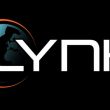Updating FCC rules and procedures
Recent public notices from the FCC provide a good opportunity to review some regulatory procedures for licensees that might have experienced personnel changes since the changes were originally announced.
-
ULS Auto Termination Program: The FCC’s program began on Feb. 2. Any call signs with construction deadlines of Feb. 1, or later will be subject to the auto termination process. Call signs that have construction deadlines between the date when the Universal Licensing System (ULS) was initially brought online in 2000 and Feb. 1, will be handled with a manual cancellation process, involving some action by an FCC employee.
The automatic termination process is not for an entire call sign but rather is by specific frequency and location on each license. In other words, a licensee may have a particular frequency or location automatically cancelled on their license, but the remaining frequencies or locations would remain valid. Since a call sign could have been modified several times to add channels and/or locations, it is possible to have a license with a combination of pre-ULS and post-ULS implementation, and post-Feb. 1, frequencies and locations on a single call sign. The FCC’s process will terminate a call sign (if there is only one channel and location) and will terminate specific channels and locations on the call sign, but leave the call sign active for other locations and channels that have the construction information entered.
-
Pleadings May Now Be Filed Online: ULS will now accommodate the online filing of pleadings, which previously had to be filed via paper with the FCC’s Office of the Secretary. On the ULS Web page, there will be a link for this. There is a drop-down menu with various filing descriptions to choose from as well as a methodology to link the filing to file numbers of pending applications. This program also will accept late-filed pleadings, which will then be accepted based on merit. You also may continue to file manually with the Office of the Secretary.
-
Certain Carriers Must File Customer Proprietary Network Information (CPNI): On Feb. 2, the FCC issued a public notice demanding that telecommunications carriers file compliance certificates as to how they are protecting CPNI no later than Feb. 6. Basically, you are being asked what steps you take to ensure your customers’ privacy.
Common carriers have this requirement under Section 64.2009(e) of the commission’s rules. Unfortunately, the public notice did not reference common carriers, it just said telecommunications carriers. However, we confirmed with the FCC’s Enforcement Division (which issued the public notice) that this requirement applies to common carriers only. If you operate a carrier system (paging or two-way), and you are interconnected with the public network, you are a common carrier, and you must abide by the FCC’s CPNI rules (among other carrier rules). If you are a carrier, but you are not interconnected (in other words, a non-interconnected SMR or community repeater), you do not need to file.
In addition, please remember that all common carriers, pursuant to Section 1.47(h) of the FCC’s rules, MUST have a designated Washington agent for service.
Finally, if you are any type of carrier, either private carrier or common carrier, you MUST file FCC Form 499 annually (and more often than that for certain entities). This form is the Telecommunications Report Worksheet, which covers contributions for Universal Service, Telecommunications Relay Service, Local Number Portability and the North American Numbering Plan. If you not an interconnected carrier (i.e. a private carrier) and your services do not cross state lines, you will not have to make a Universal Service contribution, but you are still required to file the form in order to calculate your contribution to the other funds (which are usually very minimal). Failure to file the form may result in a fine from the commission.
Alan Tilles is counsel to numerous entities in the private radio and Internet industries. He is a partner in the law firm of Shulman Rogers Gandal Pordy & Ecker and can be reached at [email protected].

















